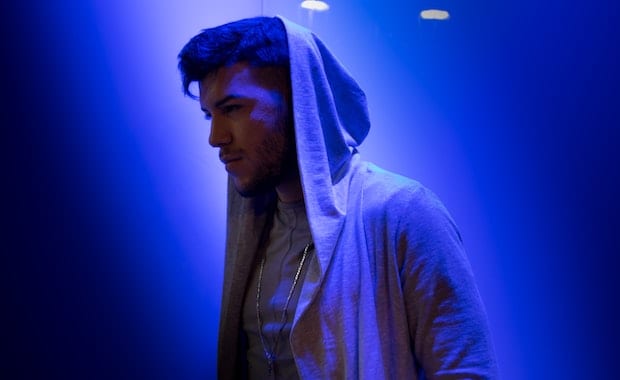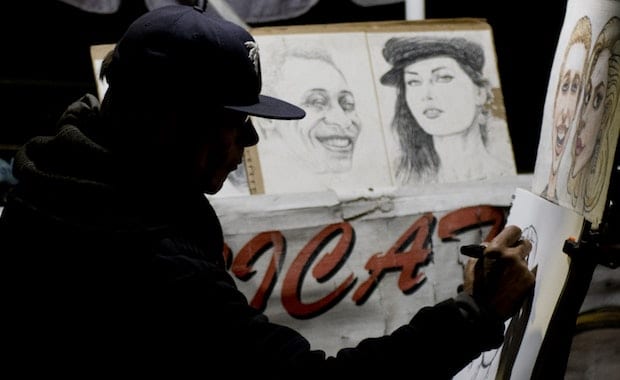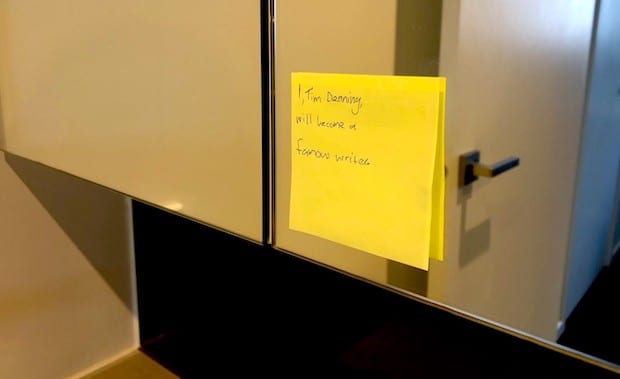Life
10 Life Lessons To Learn From Andre Agassi’s Book “Open”

As Andre Agassi walks onto the stage, I see a man that looks as though he has fought many battles. His spirit is unwavering. As he begins to talk, he comes across as one of the few sages of sport. He’s learned the lessons of success and failure the hard way.
Andre’s intelligence doesn’t appear to be of an intellectual kind but more of an emotional kind. Having read his book, it’s clear that Andre has had his fair share of adversity. What I loved though was that Andre said, “Adversity builds character.”
This sentence became clear because as Andre spoke, his exceptional character shone through brightly. The scoreboard of Andre’s life seems to have gone in his favor the more he has chosen to live the right way. When he was making poor choices, the scoreboard in tennis went against him.
The deeper the conversation became with Andre on stage, the more apparent it became that he believed that success was about how you went about life. The part of Andre’s interview that most resonated with the audience was when he said that, “we all live different experiences but our lives are the same.”
Andre’s life could easily be perceived as the ultimate experience. As it turns out, he suffered the same challenges as normal people do. In fact, it could be argued that his problems were even worse than the average person’s.
The final mantra that Andre described, which hit me in the face like a cold shower, was that “Instead of surviving, we should learn to thrive.” Why settle for mediocre? Everything we go through in life is our choice, and we can achieve whatever we want as long as we make fabulous choices.
Seeing Andre live seemed like a strange coincidence because I had only just finished reading his book “Open” a few weeks prior. Everything happens for a reason I guess.
Here are the 10 lessons I learned from Andre’s book that will forever change you:
1. You are playing yourself not your opponent
Life is not about winning against other people; it’s about winning against yourself. How do you do that? By trying to be just 1% better than you were the day before. The small steps are where the seemingly big steps of growth come from.
Your mind plays a big part in your life, and it can often be your invisible opponent until you see its importance. Use your minds weaknesses to leverage your strengths.
2. What you feel is not important, it’s what you do
We all feel a vast variety of emotions each day. The people that act on the negative one’s too often become the criminals and the people that can control the negative one’s become the champions like Andre. Feeling and thinking mean nothing.
It’s what you do with your thoughts and feelings that determine your success. The best way to live life at the highest level is to take more action in the direction you want to go. If your dream is to be phenomenal at sport, then take action towards achieving this goal.
While everyone else is out drinking, you need to be working towards your goal. When feelings arise, and they will, use them to your advantage and manipulate them towards your advantage. The worlds counting on you to do something courageous, extraordinary, and brave. That’s how champions like Andre are born.
3. We can learn to love the things we hate
Throughout Andre’s book, he describes many times his hate for the sport of tennis. It’s clear by the end that he is able to deal with his hatred of tennis because he has learned to love it for the meaning it gives him, the income he earns which helps him do more good, and the sport’s ability for him to help others with their own struggles and injustices.
While I don’t think doing something you hate is to be advised, I do see through Andre’s eyes that any struggle can help construct your mindset. Without adversity, you won’t have the building blocks for success. You need a varied experience, with plenty of challenges, to have any chance of achieving the extraordinary.
Sitting at home thinking about what you want to do and talking about it will never make your dream come true. Go out there and pursue it despite what others tell you!
4. Bad feelings last longer than good one’s
In the book, Andre describes what it’s like to win and lose a major tennis game. While I would have thought that winning is something that he would focus on, Andre describes winning as very anti-climatic.
He explains that losing is the hardest part because it lasts ten times longer than the winning feeling. We’ve all experienced this in our lives where we reach a significant milestone and then think to ourselves, “Is this all there is?”
We expect the good feeling of winning and achieving to last a long time, but it never does. This fact always seems to surprise us every time like we didn’t already know it to be true. Remember that everything we do in life is typically to chase some positive feeling.
5. Perfectionism will kill you
One of Andre’s career challenges was that he was trying to hit a winning ball every time. Towards the end of his career, he learned that not winning every ball, and remaining steady and consistent was far more crucial to him winning.
In life, being perfect at everything you do is the same. Rather than win at every task you do, try to remain consistent and concentrate on getting just that little bit better with a solid routine of habits.
“Trying to be perfect is stacking the odds against yourself”
6. Winning is short-term
The odd lesson we get from Andre’s book is just how little becoming number one in the world at something changes your reality. When Andre describes becoming number one, he says that he feels nothing. Even when he wins some important games, he describes the feeling as only lasting a short time.
You can’t rely on winning to be your day-to-day motivation. You have to be able to live a fantastic day every day even if you haven’t won or achieved anything significant. If you become addicted to feeling that winning feeling, then you are certain to fail and fall off a cliff at some point.
“No matter how much you win, if you’re not the last one to win, you’re a loser” – Andre Agassi
7. Fighting our pain and relieving other people’s pain is why we’re here
Andre’s trainer Gil in the book becomes very sick, and he learns a life-changing lesson. The lesson he learns is that fighting our pain and relieving other people’s pain is why we’re here. We’re put on this planet to help people with their struggles rather than just focusing on our own.
When we help people through their struggles, it helps us with our own. Fighting through the pain is the only thing we can do. If we surrender to it, then our progress goes backwards, and we run the risk of terminating our existence.
Once you discover how to end people’s pain you, unlock the infinite wisdom that Andre himself has tapped into. It’s not about you; it’s about others.
8. Fear is your fire
Fear never goes way, and it’s part of our genetic makeup. Without fear, we would lose the fire to succeed at our dream. When we become fearless, we become unmotivated and on the brink of failure. Let fear motivate you rather than stop you from getting where you want to go.
9. We see ourselves in other’s comebacks
There’s nothing interesting about constant success. We all get excited when we see someone struggle and then get to experience their comeback. We’ve all fallen from grace at some stage in our life, and the journey back to the top is where all the growth and positive feelings lie.
We can all identify with struggle and it’s what glues us all together as one. We can all see a part of ourself in Andre’s comeback and struggles.
10. Don’t think, feel
As usual, the book finishes with some wise words from a woman (Andre’s wife, Stefanie). She explains that when we think too much, we block ourselves from achieving our goal. We have to learn to use our intuition and feel our way through challenges.
Over-thinking is the symptom for most of the time’s I’ve failed at something, and I’m sure you can relate. There’s a time for thinking, and there is a time for feeling.
“In the heat of the match of your life, you have to trust your thoughts and feel your way towards the outcome you so badly desire”
What did you take away from Andre’s teachings? Let me know on my website timdenning.net or my Facebook.
Did You Know
How Skilled Migrants Are Building Successful Careers After Moving Countries
Behind every successful skilled migrant career is a mix of resilience, strategy, and navigating systems built for locals.

Moving to a new country for work is exciting, but it can also be unnerving. Skilled migrants leave behind familiar systems, networks, and support to pursue better job opportunities and a better future for their families. (more…)
Life
10 Research-Backed Steps to Create Real Change This New Year
This New Year could finally be the one where you break old patterns and create real, lasting change.

Every New Year, we make plans and set goals, but often repeat old patterns. (more…)
Life
9 Harsh Truths Every Young Man Must Face to Succeed in the Modern World
Before chasing success, every young man needs to face these 9 brutal realities shaping masculinity in the modern world.

Many young men today quietly battle depression, loneliness, and a sense of confusion about who they’re meant to be.
Some blame the lack of deep friendships or romantic relationships. Others feel lost in a digital world that often labels traditional masculinity as “toxic.”
But the truth is this: becoming a man in the modern age takes more than just surviving. It takes resilience, direction, and a willingness to grow even when no one’s watching.
Success doesn’t arrive by accident or luck. It’s built on discipline, sacrifice, and consistency.
Here are 9 harsh truths every young man should know if he wants to thrive, not just survive, in the digital age.
1. Never Use Your Illness as an Excuse
As Dr. Jordan B. Peterson often says, successful people don’t complain; they act.
Your illness, hardship, or struggle shouldn’t define your limits; it should define your motivation. Rest when you must, but always get back up and keep building your dreams. Motivation doesn’t appear magically. It comes after you take action.
Here are five key lessons I’ve learned from Dr. Peterson:
-
Learn to write clearly; clarity of thought makes you dangerous.
-
Read quality literature in your free time.
-
Nurture a strong relationship with your family.
-
Share your ideas publicly; your voice matters.
-
Become a “monster”, powerful, but disciplined enough to control it.
The best leaders and thinkers are grounded. They welcome criticism, adapt quickly, and keep moving forward no matter what.
2. You Can’t Please Everyone And That’s Okay
You don’t need a crowd of people to feel fulfilled. You need a few friends who genuinely accept you for who you are.
If your circle doesn’t bring out your best, it’s okay to walk away. Solitude can be a powerful teacher. It gives you space to understand what you truly want from life. Remember, successful men aren’t people-pleasers; they’re purpose-driven.
3. You Can Control the Process, Not the Outcome
Especially in creative work, writing, business, or content creation, you control effort, not results.
You might publish two articles a day, but you can’t dictate which one will go viral. Focus on mastery, not metrics. Many great writers toiled for years in obscurity before anyone noticed them. Rejection, criticism, and indifference are all part of the path.
The best creators focus on storytelling, not applause.
4. Rejection Is Never Personal
Rejection doesn’t mean you’re unworthy. It simply means your offer, idea, or timing didn’t align.
Every successful person has faced rejection repeatedly. What separates them is persistence and perspective. They see rejection as feedback, not failure. The faster you learn that truth, the faster you’ll grow.
5. Women Value Comfort and Security
Understanding women requires maturity and empathy.
Through books, lectures, and personal growth, I’ve learned that most women desire a man who is grounded, intelligent, confident, emotionally stable, and consistent. Some want humor, others intellect, but nearly all want to feel safe and supported.
Instead of chasing attention, work on self-improvement. Build competence and confidence, and the rest will follow naturally.
6. There’s No Such Thing as Failure, Only Lessons
A powerful lesson from Neuro-Linguistic Programming: failure only exists when you stop trying.
Every mistake brings data. Every setback builds wisdom. The most successful men aren’t fearless. They’ve simply learned to act despite fear.
Be proud of your scars. They’re proof you were brave enough to try.
7. Public Speaking Is an Art Form
Public speaking is one of the most valuable and underrated skills a man can master.
It’s not about perfection; it’s about connection. The best speakers tell stories, inspire confidence, and make people feel seen. They research deeply, speak honestly, and practice relentlessly.
If you can speak well, you can lead, sell, teach, and inspire. Start small, practice at work, in class, or even in front of a mirror, and watch your confidence skyrocket.
8. Teaching Is Leadership in Disguise
Great teachers are not just knowledgeable. They’re brave, compassionate, and disciplined.
Teaching forces you to articulate what you know, and in doing so, you master it at a deeper level. Whether you’re mentoring a peer, leading a team, or sharing insights online, teaching refines your purpose.
Lifelong learners become lifelong leaders.
9. Study Human Nature to Achieve Your Dreams
One of the toughest lessons to accept: most people are self-interested.
That’s not cynicism, it’s human nature. Understanding this helps you navigate relationships, business, and communication more effectively.
Everyone has a darker side, but successful people learn to channel theirs productively into discipline, creativity, and drive.
Psychology isn’t just theory; it’s a toolkit. Learn how people think, act, and decide, and you’ll know how to lead them, influence them, and even understand yourself better.
Final Thoughts
The digital age offers endless opportunities, but only to those who are willing to take responsibility, confront discomfort, and keep improving.
Becoming a man today means embracing the hard truths most avoid.
Because at the end of the day, success isn’t about luck. It’s about who you become when life tests you the most.
Change Your Mindset
The Four Types of Happiness: Which One Are You Living In?
Most people chase success only to find emptiness, this model reveals why true happiness lies somewhere else.

In a world driven by rapid technological growth and constant competition, many people unknowingly trade joy for achievement. (more…)
-

 News1 week ago
News1 week agoBrandon Willington Builds 7-Figure Business by Ignoring Almost Everything
-

 Health & Fitness2 weeks ago
Health & Fitness2 weeks agoWhat Minimalism Actually Means for Your Wellness Choices
-

 Did You Know2 weeks ago
Did You Know2 weeks agoWhy Most Online Courses Fail and How to Fix Them
-

 Business2 weeks ago
Business2 weeks agoIf Your Business Internet Keeps Letting You Down, Read This
-

 Business4 days ago
Business4 days agoEntrepreneur’s Guide to Pay Stubs: Why Freelancers and Small Business Owners Need a Smart Generator
-

 Business2 days ago
Business2 days agoThe Simple Security Stack Every Online Business Needs
-

 Finances2 days ago
Finances2 days agoWhy Financial Stress Is One of the Biggest Barriers to Personal Growth
-

 Scale Your Business2 days ago
Scale Your Business2 days ago5 Real Ways to Grow Your User Base Fast




















4 Comments